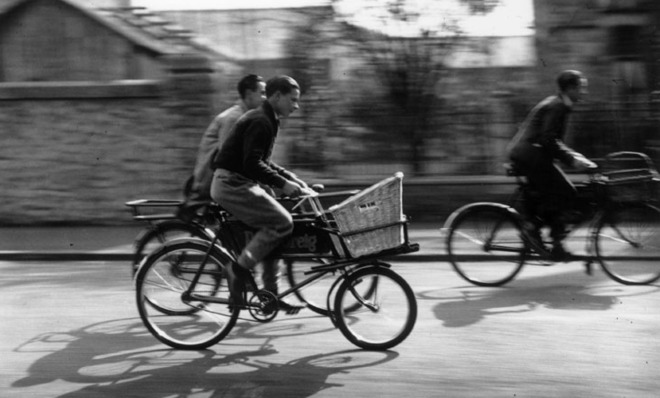How to do the right thing, according to science
Being a good person can be as easy as keeping a teddy bear nearby...

A free daily email with the biggest news stories of the day – and the best features from TheWeek.com
You are now subscribed
Your newsletter sign-up was successful

In case you aren't getting your RDA minimum of irony lately, I'm here to inform you that ethics books get stolen more frequently than other books:
Overdue or missing, as a percentage of those off shelf:
Ethics: 21.0 percent
The Week
Escape your echo chamber. Get the facts behind the news, plus analysis from multiple perspectives.

Sign up for The Week's Free Newsletters
From our morning news briefing to a weekly Good News Newsletter, get the best of The Week delivered directly to your inbox.
From our morning news briefing to a weekly Good News Newsletter, get the best of The Week delivered directly to your inbox.
Non-ethics: 10.0 percent
Missing, as a percentage of those off shelf:
Ethics: 8.2 percent
Non-ethics: 6.4 percent
A free daily email with the biggest news stories of the day – and the best features from TheWeek.com
Research shows that in a multitude of ways bad truly is stronger than good.
Via Good Boss, Bad Boss: "In everyday life, bad events have stronger and more lasting consequences than comparable good events."
Being a good person can be soooooooo inconvenient at times.
Here are five research-backed tips that can help you be good when doing the right thing isn't easy.
1. Reminders
The first step to being a good person is establishing reminders.
Seems too simple but reminders have powerful effects.
- Text message reminders encouraged saving, reduced smoking, and increased voting.
- Mentioning the Ten Commandments before a tempting situation reduced cheating on a test.
- Guilting people works because reminding others of their transgressions causes them to improve their behavior. It also makes them more likely to accept apologies and forgive.
2. Supervision
Obviously, a boss standing over your shoulder can keep you in line but just feeling like you're being supervised is quite powerful.
How do you pull that magic trick off? Have a mirror nearby.
Charles Carver and Michael Scheier, who arrived at a vital insight: Self-awareness evolved because it helps self-regulation. They had conducted their own experiments observing people sitting at a desk where there happened to be a mirror. The mirror seemed a minor accessory — not even important enough to mention to the people — yet it caused profound differences in all kinds of behavior. If the people could see themselves in the mirror, they were more likely to follow their own inner values instead of following someone else's orders. When instructed to deliver shocks to another person, the mirror made people more restrained and less aggressive than a control group that wasn't facing a mirror. A mirror prompted them to keep working harder at a task. When someone tried to bully them into changing their opinion about something, they were more likely to resist the bullying and stick to their opinion. [Willpower: Resdiscovering the Greatest Human Strength]
3. Get enough sleep
Lack of sleep is correlated with unethical behavior:
In a cross-sectional field study examining unethical behavior in a variety of work settings, low levels of sleep, and low perceived quality of sleep, were both positively related to unethical behavior… [Organizational Behavior and Human Decision Processes]
4. Hang out with good people
Seeing others behave dishonestly makes you more likely to be dishonest.
Seeing people behave altruistically makes you more likely to be altruistic:
…these results provide evidence that witnessing another person's altruistic behavior elicits elevation, a discrete emotion that, in turn, leads to tangible increases in altruism. [Psychological Science]
Research shows you become like the people you surround yourself with, so spend more time with the type of people you want to be.
From Charles Duhigg's excellent book The Power of Habit: Why We Do What We Do in Life and Business:
In a 1994 Harvard study that examined people who had radically changed their lives, for instance, researchers found that some people had remade their habits after a personal tragedy, such as a divorce or a life-threatening illness…Just as frequently, however, there was no tragedy that preceded people's transformations. Rather, they changed because they were embedded in social groups that made change easier… When people join groups where change seems possible, the potential for that change to occur becomes more real. [The Power of Habit: Why We Do What We Do in Life and Business]
5. Think about your childhood
Being a good person can be as easy as keeping a teddy bear nearby.
No, I'm not saying you should carry around stuffed animals but reminders of children make you more honest.
Half the participants were either in a room with children's toys or engaged in children's activities. Across the board, those participants lied less and were more generous than the control subjects. [Harvard Business Review]
Taking a minute to recall memories from your childhood can improve your behavior.
Four experiments demonstrated that recalling memories from one's own childhood lead people to experience feelings of moral purity and to behave prosocially. [Harvard Business School]
Join 100K+ readers and get a free weekly update via email here.
More from Barking Up The Wrong Tree...
-
 Political cartoons for February 16
Political cartoons for February 16Cartoons Monday’s political cartoons include President's Day, a valentine from the Epstein files, and more
-
 Regent Hong Kong: a tranquil haven with a prime waterfront spot
Regent Hong Kong: a tranquil haven with a prime waterfront spotThe Week Recommends The trendy hotel recently underwent an extensive two-year revamp
-
 The problem with diagnosing profound autism
The problem with diagnosing profound autismThe Explainer Experts are reconsidering the idea of autism as a spectrum, which could impact diagnoses and policy making for the condition